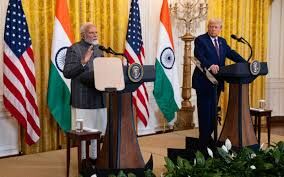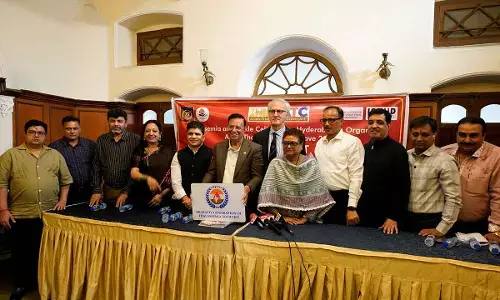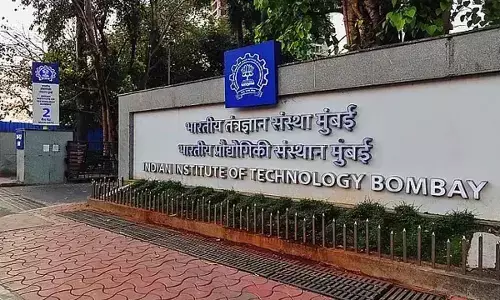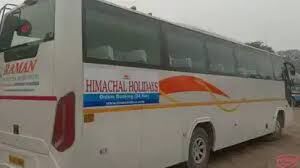The 29th State

Padmaja Shaw - In 1979, Gautam Ghose directed the film ‘Maa Bhoomi’ on the Telangana Armed Struggle. The last 30 minutes of the film take us through a telling phase of our history that underlines the nature of our independence from colonialism. The people of Telangana were driven to armed resistance by the intense forms of exploitation and oppression by the local landlords (most of them Hindus) who colluded with the Nizam. The liberation struggle culminated with the redistribution of land in some 3000 villages. But then the Indian army entered the picture in the name of integrating a recalcitrant Nizam and his Razakars with the newly independent India.
In 1979, Gautam Ghose directed the film ‘Maa Bhoomi’ on the Telangana Armed Struggle. The last 30 minutes of the film take us through a telling phase of our history that underlines the nature of our independence from colonialism. The people of Telangana were driven to armed resistance by the intense forms of exploitation and oppression by the local landlords (most of them Hindus) who colluded with the Nizam. The liberation struggle culminated with the redistribution of land in some 3000 villages. But then the Indian army entered the picture in the name of integrating a recalcitrant Nizam and his Razakars with the newly independent India.
The army ‘sanitised’ all resistance, subdued the Nizam and handed over the reins of local power back to the traditional landlords in their new avatar as Congressmen wearing khadi and donning the Gandhi caps. The film, however, does not say what happened soon after – that the Left parties were banned and Congress revived and protected Muslim fundamentalism as a counter to progressive politics that espoused people’s causes in this region. This was a boon to the Hindu-right as well, as it found a ready counterpoint to work with. That transition of power in Telangana was one of the greatest betrayals of history committed in the name of democracy.
Once again the Telangana region is at a historic juncture when popular aspirations forced the hand of the Central government to declare its intention to form a separate State. But the announcement of impending statehood has triggered a frantic debate about who will merge with whom and who will get how many seats in which region to acquire clout in government formation at the Centre. Most political leaders of all hues who are vying for their place in the sun have dubious backgrounds and histories of land-grab, blackmail and extortion. Only some of their followers may have benefitted from their rise to power but Telangana has remained impoverished. The literacy figures of men and women, the distress migration from large sections of Telangana region, the unabated history of suicides by farmers stands testimony to this argument. These have also been the bargaining chips in the power-play for separation.
So far, Seemandhra leadership has been blamed. But the new leadership has to step up to history and prove themselves to be different. Given the nature of the leadership’s rise to power and their faith in the existing political economy of speculation and cornering of natural resources, the people of Telangana have their task cut out before them. There is very little attention being paid to the real needs of the people in the run-up to the formation of the State. Will the new Telangana continue with the policy of weakening State-run education system and creating air-conditioned gated communities of education? These institutions are manufacturing individuals without any understanding of their own society.
Poverty is a statistic without any meaning for them. And, surely, because of their economic clout and social capital, it is these alienated individuals who will take up positions of power. Why is it surprising when a Montek Singh Ahluwalia or Farooq Abdulla says that you can get a meal for one rupee in this country? The absence of well-equipped government schools is ghettoizing the poorer sections and further marginalising them. There is a need to bring back common schooling in the long-term interests of building responsible citizenry.
The political formations in Andhra Pradesh have also maintained a steady silence about the allocation of natural resources to corporate entities like the Reliance group. The new State of Telangana must have clarity on such policies. One of the ‘achievements’ of the merger of Andhra and Telangana was the closure of major industries established by the Nizam. Allwyn, a manufacturer of nationally valued brands of watches and refrigerators, was handed over to private players for a song.
Today most of its lands have been converted and sold as prime real estate, making a killing for the private players in the process. It is well-known that the lands of the closed DBR Mills were being eyed by the son of a powerful Chief Minister of the State. A part of this unquenchable greed is also the desire to render small-scale agriculture unviable and drive people off their agricultural lands. Institutions like the World Bank have been providing saleable arguments about how migration makes people more dynamic and enterprising. One wonders if there is, or should be, a distinction drawn between migration by choice of educationally and socially empowered people and distress migration of non-literate, unskilled population.
Barring the city of Hyderabad, with dwindling manufacturing, and dwindling agriculture, where are the people of Telangana supposed to be productively employed? The aspirants to power in the new State of Telangana must clarify their stand on this.
Lastly, one of the troubled legacies of Telangana history is the issue of religious identity. There are communal parties waiting in the wings to refresh old wounds and to cash in on them. Unfortunately, they seem to succeed with considerable ease in urban pockets in doing this.
Telangana has a long progressive history and an instinctive understanding that feudal power, corporate power and religious mobilization, all but lead to the illegitimate claim to resources and illegitimate accumulation of wealth. If this understanding is further reinforced at the grass roots, there is hope for a better life in the new State. On January 3, 2010, under court orders that prohibited political parties, all the student organizations in Telangana held a massive rally on Osmania University campus. It was attended by an estimated 1,50,000 students from all over Telangana. They sang, they heard the speeches.
The large numbers of students who converged at the location dispersed quietly at the appointed time without a single untoward incident. It was a peaceful, disciplined show of solidarity. The future of the new Telangan State rests in the hands of these educated, responsible, young people. They still have the integrity and idealism of youth and have the power to control the direction of politics in the State to secure their own future without selling out to the vested interests. The road ahead will not be easy. May the force be with them.
The future of the new Telangana State rests in the hands of these educated, responsible, young people. They still have the integrity and idealism of youth and have the power to control the direction of politics in the State to secure their own future without selling out to the vested interests. The road ahead will not be easy. May the force be with them
Padmaja Shaw
















